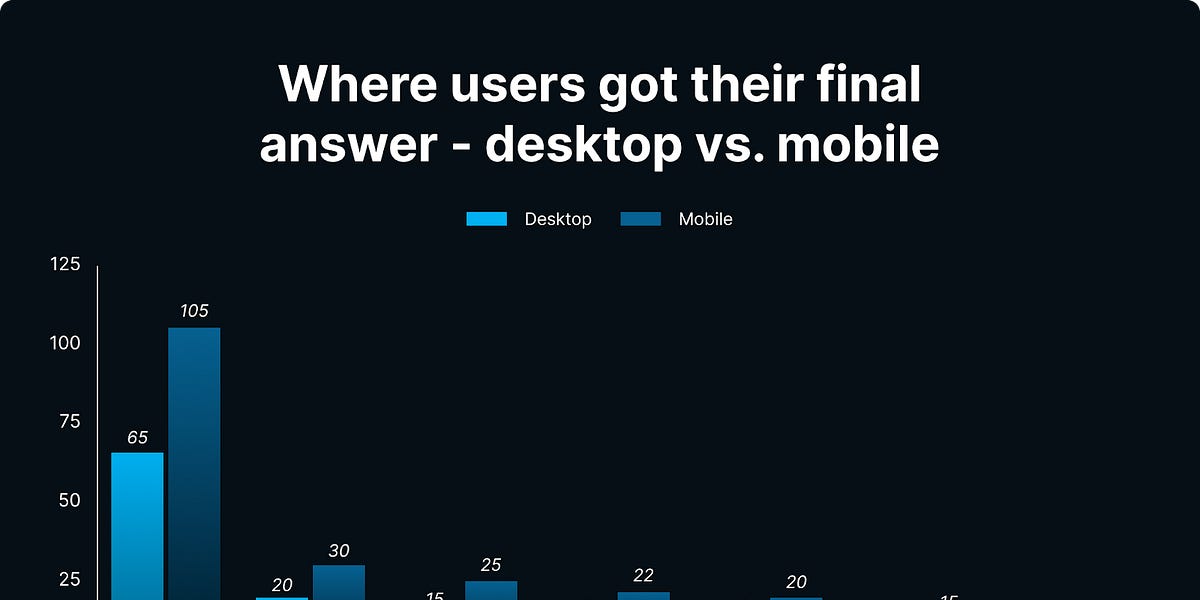EP 208 - SEO Tactics from the Frontline: Real User Behavior in AI Overviews - Part 2 of the UX Study Analysis
Kevin Indig joins the Near Memo to reveal why SEO is now all about trust, not traffic. Users pick what they recognize, not just what ranks. Clicks are down, but buying behavior hasn’t changed. Learn how to adapt your SEO to this new reality.

The Podcast Deets
00:55 – “Trust over Traffic: The SEO Paradigm Shift”
02:10 – “SEO as Traffic Cop, Not Traffic Driver”
03:33 – “Reddit, YouTube & Beyond: Tactical SEO Musts”
07:20 – “Google Killed the Small Guys”
09:05 – “Google’s Fear-Driven Strategy”
11:14 – “Redefining SEO Inside the Org”
12:03 – “Click Recession and the Future of Metrics”
13:31 – “Pitching the New SEO to Leadership”
17:17 – “People Don’t Know LSAs Are Ads”
20:22 – “Gen Z, TikTok, and the Platform Migration”
22:23 – “ChatGPT Is the Train—You’re the Station”
Part 2 of the Near Memo Podcast’s deep dive into real user behavior discusses what SEO looks like in 2025.
In this episode, Kevin and Eric break down the shift from “attention economy” to “trust economy,” and how user behavior in AI Overviews, Local Packs, Reddit results, and YouTube snippets is reshaping what SEOs, marketers, and digital teams must prioritize.
Spoiler: The SEO playbook has changed—and if you’re still using the old one, you’re falling behind.
They unpack the tactical implications of one of the most detailed UX studies in recent search history. After analyzing 70 users and over 30 hours of on-screen behavior, they’ve come back with a clear message:
Trust is now the first click. Traffic is just a byproduct.
And if you’re still measuring SEO success by rankings and CTR, you’re going to miss what really matters.
These are real behavioral insights from real people doing real searches—not just theory or clickstream data. The study captures how users scan, where they scroll, why they don’t click, and what triggers trust.
And the conclusion is clear: The top result doesn’t always win. The trusted one does.
Related Links

Takeaways
- Clicks are down. Conversions aren’t. “Click stagflation” is here. Users click less, but they still buy. Old KPIs won’t cut it—especially in AI-dominated SERPs.
- Trust is the new filter.Before users even ask if your content is relevant, they ask: Do I trust this brand? Have I heard of it before? Recognition drives action.
- AI Overviews don’t kill SEO—they change it. Users skim AI results quickly. But for high-stakes searches (finance, health, law), they dig deeper. The opportunity? Be the source they fact-check with.
- Reddit and YouTube didn’t rise by accident. Google didn’t boost forums because they wanted to—they had to. Younger users were defecting to TikTok and ChatGPT. Google’s adapting under pressure.
- It’s time to rethink team structure. SEO now overlaps with content, UX, paid, and social. Maybe it’s time to ditch silos and build real growth teams.
Full Transcript
Greg (00:10)
A lot of what people use Google for now, and I think increasingly so, is just navigational or brand search. For example, someone might search "Mike Blumenthal, dog trainer" because that’s what their vet recommended. They're not looking to discover something—they’re confirming what they already know.
Kevin Indig (00:55)
Exactly. I’d summarize it like this: we’re moving from an attention economy to a trust economy. SEO is no longer the pure performance channel it used to be—if it ever really was. Now, it's a branding channel. It’s about influencing users over time.
That’s hard to accept. People naturally resist change. We want the playbook that’s predictable. But success metrics have to evolve. We need better ways to measure trust and sentiment—merging qualitative and quantitative methods to know if we’re actually moving in the right direction.
Eric Van Buskirk (01:57)
Right, and that opens the door to broaden our scope. It's not just about ChatGPT anymore. We're also talking Reddit, YouTube—other ecosystems where trust and presence matter.
Kevin Indig (02:10)
SEOs today are like traffic cops at busy intersections—coordinating teams more than driving clicks. Success isn't just about tweaking tags for quick traffic bumps. It's about aligning product, content, design, and brand. SEO success in 2025 will be much more collaborative than ever before.
Greg (02:57)
That leads us into tactical changes SEOs need to adopt. Let's start with those and then discuss SEO's evolving place within organizations.
Kevin Indig (03:33)
Here are three big takeaways:
- You need to be present across platforms—Reddit, YouTube, or wherever your audience hangs out. Not every brand needs a slick YouTube channel, but someone should be thinking about how your brand shows up there.
- Structure content around trust and skimmability. People don’t read—they scan. We saw users gravitate toward content that highlighted key takeaways, FAQ boxes, and clear summaries. Adding publish dates, editorial notes, and disclosures helps build trust.
- Understand your users more deeply. Map content not just to intent, but to age, risk tolerance, and context. What’s at stake in the query? You can use tools like GA to reverse-engineer demographics.
Eric Van Buskirk (05:53)
Exactly. People are more sophisticated than we give them credit for. They're tuned into credibility signals, especially in high-stakes queries like health and finance.
Kevin Indig (06:12)
Right. The higher the stakes, the deeper the scrutiny. In medical or financial searches, users didn’t just glance—they spent time validating. In low-stakes topics, they skimmed and moved on quickly.
Greg (07:20)
This brings up the idea that Google is favoring big brands—often at the expense of smaller publishers. It’s not always merit-based. Many small businesses are being squeezed out.
Eric Van Buskirk (07:54)
It’s a real concern. It raises the question: are big brands dominating because they’re better—or because Google has engineered the SERP in their favor?
Greg (09:05)
There’s also the fear-driven side. Google isn’t always innovating for users. Sometimes, it’s reacting—worried about TikTok, ChatGPT, and losing the next generation of users. That’s why we’re seeing more Reddit and YouTube in the results.
Kevin Indig (11:14)
The number one challenge now is getting buy-in. You’re proposing new tools, new roles—YouTube strategy, Reddit engagement, AI content. But that means redefining SEO itself.
Eric Van Buskirk (12:03)
Exactly. We’re in a "click recession." Clicks are down and they’re not coming back. That doesn’t mean people stop buying—it means we have to measure differently. Influence and trust are harder to quantify, but they matter more than ever.
Kevin Indig (12:31)
Right, and this shift means we may need new teams. Think cross-functional “growth” teams that include SEO, content, paid, and social—because users don’t care about our org chart. They care about answers.
Eric Van Buskirk (13:31)
And pitching this to leadership is the biggest challenge. The lag time between effort and result makes it a tough sell. But we’re losing that middle measurement layer—clicks. It might take six months to see results, and it’s hard to isolate the impact of any one change.
Greg (17:17)
Let’s talk Local Services Ads (LSAs). In behavioral studies, people gravitate to them—but often don’t realize they’re ads. They see headshots, star ratings, trust badges—and think, "This is the best option."
Eric Van Buskirk (17:54)
It’s not deception—it’s effective UX. People trust visuals. This is a huge reason LSAs perform so well.
Kevin Indig (19:52)
Also, we need to understand demographics. Younger users search differently. Gen Z may prefer TikTok or Reddit. This shift isn’t temporary—it’s generational.
Greg (20:22)
That was confirmed by Google itself. Prabhakar Raghavan once said many young users go to TikTok for search. He’s no longer at Google Search—but the shift remains. Age determines platform behavior.
Kevin Indig (22:23)
So what’s the opportunity? It’s not to compete with AI on speed or scope. AI is the train. You’re the station. Be the place where users verify and fact-check AI answers. That’s how brands win.
Greg (23:22)
Thanks, Kevin and Eric. This was a rich discussion. We’ll see you next time—and thanks to GatherUp for sponsoring.

